-
 Bitcoin
Bitcoin $115100
1.27% -
 Ethereum
Ethereum $3675
2.71% -
 XRP
XRP $2.995
1.45% -
 Tether USDt
Tether USDt $1.000
0.02% -
 BNB
BNB $769.8
2.64% -
 Solana
Solana $168.0
3.25% -
 USDC
USDC $0.9999
-0.01% -
 TRON
TRON $0.3371
1.48% -
 Dogecoin
Dogecoin $0.2051
3.36% -
 Cardano
Cardano $0.7394
2.30% -
 Hyperliquid
Hyperliquid $38.15
0.42% -
 Stellar
Stellar $0.3966
-0.36% -
 Sui
Sui $3.486
2.93% -
 Chainlink
Chainlink $16.72
2.52% -
 Bitcoin Cash
Bitcoin Cash $568.0
4.36% -
 Hedera
Hedera $0.2440
2.59% -
 Ethena USDe
Ethena USDe $1.001
0.04% -
 Avalanche
Avalanche $22.16
2.06% -
 Litecoin
Litecoin $119.1
-0.73% -
 UNUS SED LEO
UNUS SED LEO $8.991
0.04% -
 Toncoin
Toncoin $3.232
-0.39% -
 Shiba Inu
Shiba Inu $0.00001233
2.82% -
 Uniswap
Uniswap $9.717
2.53% -
 Polkadot
Polkadot $3.664
1.85% -
 Dai
Dai $1.000
0.01% -
 Monero
Monero $281.2
-3.89% -
 Bitget Token
Bitget Token $4.350
1.55% -
 Cronos
Cronos $0.1428
5.07% -
 Pepe
Pepe $0.00001050
3.68% -
 Aave
Aave $262.3
3.54%
how to get bsc bep20 address on binance
Your Binance spot wallet address works for BEP20 tokens; selecting the correct "Binance Smart Chain (BEP20)" network during deposits and withdrawals is crucial to avoid irreversible token loss.
Mar 26, 2025 at 01:49 am
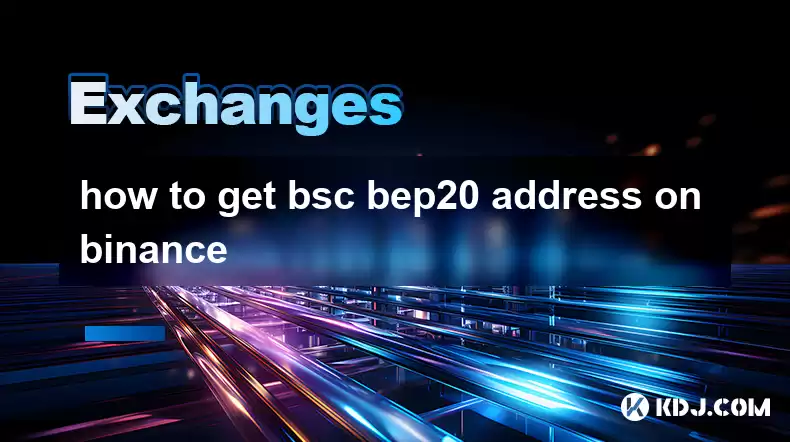
Key Points:
- Binance doesn't directly display a "BSC BEP20 address" label. Your Binance spot wallet address is inherently compatible with BEP20 tokens on the Binance Smart Chain (BSC).
- Understanding the difference between network types (BEP20 and others) is crucial for sending and receiving tokens correctly.
- You'll need to select the correct network when withdrawing or depositing tokens to ensure they arrive safely.
- Incorrect network selection can lead to irreversible token loss.
How to Get a BSC BEP20 Address on Binance
Many users mistakenly believe they need a separate "BSC BEP20 address" on Binance. This isn't entirely accurate. Binance doesn't provide a dedicated address labeled as such. Instead, your existing Binance spot wallet address functions as your BEP20 address for the Binance Smart Chain. The key is selecting the correct network when sending or receiving tokens.
The confusion often arises because different blockchains use different address formats and require specific network selections during transactions. For instance, sending a BEP20 token using an Ethereum network address will result in the loss of your funds. This is because the networks are incompatible, and the tokens won't be recognized.
To use your Binance address for BEP20 tokens, you first need to ensure you're using the Binance spot wallet. This is usually the default wallet you see when you log into your account. Within the spot wallet, you'll find your unique address, often displayed under the relevant cryptocurrency's details. This single address works across various cryptocurrencies, provided you select the appropriate network when making transactions.
When depositing BEP20 tokens, you'll be prompted to choose the network. Always double-check that you've selected "Binance Smart Chain (BEP20)" before proceeding. Failing to do so will result in your tokens being sent to the wrong network, rendering them inaccessible.
Withdrawing BEP20 tokens also requires careful network selection. Binance will usually default to the correct network, but it's crucial to verify this step. Review the network selected before confirming the withdrawal. Incorrectly choosing another network will cause your withdrawal to fail, and your tokens will remain in your Binance account.
Many users also wonder if they need a separate wallet for BEP20 tokens. While you can use external wallets like MetaMask or Trust Wallet, your Binance spot wallet is perfectly suitable for holding and managing BEP20 assets. The crucial aspect is always selecting the correct network during deposits and withdrawals.
Let's illustrate this with an example. Suppose you want to deposit CAKE (a BEP20 token) into your Binance account. You will find your deposit address for CAKE. However, before pasting this address into the sending platform, ensure you choose "Binance Smart Chain (BEP20)" as the network. If you mistakenly select "Ethereum" or another network, your CAKE will be lost.
Similarly, when withdrawing CAKE from Binance, double-check that "Binance Smart Chain (BEP20)" is selected. Any other network selection will prevent the successful transfer of your tokens.
Remember, the core principle is selecting the correct network. Your Binance spot wallet address is versatile and can handle multiple cryptocurrencies and networks; the network selection during transactions is paramount. Always confirm the network before finalizing any transaction.
Frequently Asked Questions:
Q: Is my Binance address the same for all BEP20 tokens?
A: Yes, your Binance spot wallet address remains the same for all BEP20 tokens. However, you must select the "Binance Smart Chain (BEP20)" network when depositing or withdrawing these tokens.
Q: What happens if I use the wrong network for a BEP20 token deposit?
A: If you use the wrong network, your tokens will be sent to the incorrect blockchain and will be irretrievably lost. There's no way to recover them.
Q: Can I use a different wallet for my BEP20 tokens instead of Binance?
A: Yes, you can use other wallets like MetaMask or Trust Wallet, but you'll need to ensure you send your tokens to the correct address and network on those platforms as well.
Q: Why doesn't Binance show a separate "BSC BEP20 Address"?
A: Binance integrates the BEP20 network functionality within its existing wallet infrastructure. The network selection during transactions is the key differentiating factor, not a separate address.
Q: What should I do if I accidentally sent my BEP20 tokens to the wrong network?
A: Unfortunately, if you sent your BEP20 tokens to the wrong network, they are likely lost. There is typically no way to recover them. Contacting the support of the exchange or wallet you sent the tokens from might be a good idea, but your chances of recovery are low.
Q: Is there a fee for using the BSC BEP20 network on Binance?
A: Binance typically charges network fees for both deposits and withdrawals on the BSC BEP20 network. These fees vary depending on network congestion. Check Binance's fee schedule for the most up-to-date information.
Disclaimer:info@kdj.com
The information provided is not trading advice. kdj.com does not assume any responsibility for any investments made based on the information provided in this article. Cryptocurrencies are highly volatile and it is highly recommended that you invest with caution after thorough research!
If you believe that the content used on this website infringes your copyright, please contact us immediately (info@kdj.com) and we will delete it promptly.
- Avalanche vs. Ruvi AI: Daily Sales Tell a Story of Crypto Disruption
- 2025-08-07 06:29:35
- DeSoc: The Crypto to Buy Now for a Decentralized Future (and Maybe 43x Gains!)
- 2025-08-07 06:50:16
- Meme Coins in August 2025: Riding the Rally Wave
- 2025-08-07 06:56:08
- Big Whales, Altcoins, and Heavy Transactions: What's Moving the Crypto Market?
- 2025-08-07 06:29:35
- TRX, RUVI, and CoinMarketCap: What's Buzzing in the Crypto Sphere?
- 2025-08-07 05:31:17
- Cryptos Primed for 5x Gains? Ozak AI Spotlights Hot Projects
- 2025-08-07 05:41:42
Related knowledge
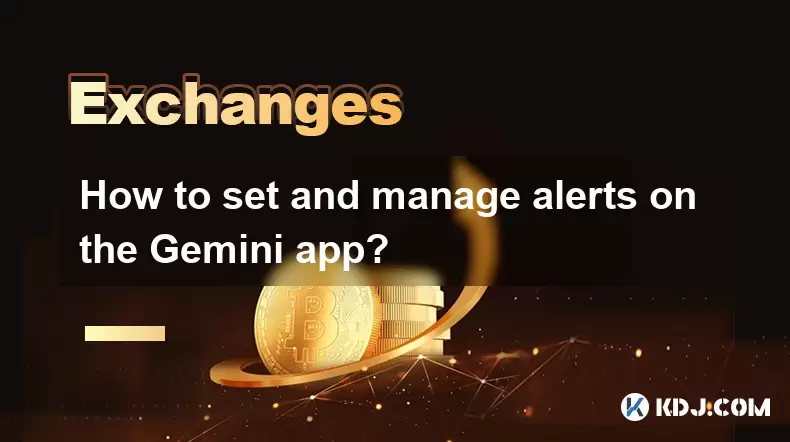
How to set and manage alerts on the Gemini app?
Aug 03,2025 at 11:00am
Understanding the Gemini App Alert SystemThe Gemini app offers users a powerful way to stay informed about their cryptocurrency holdings, price moveme...
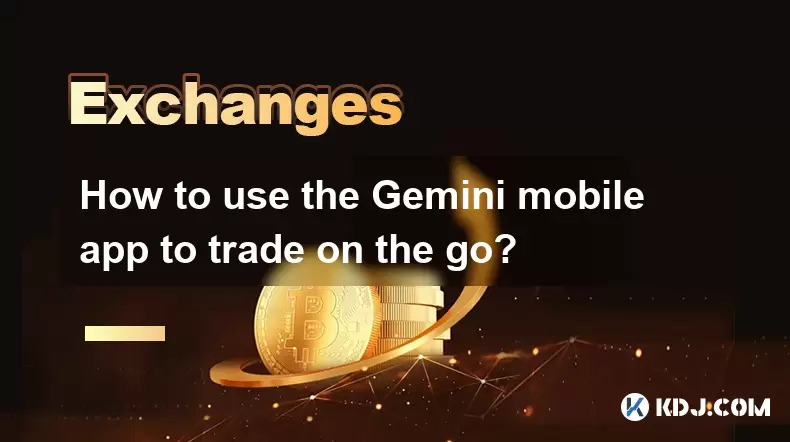
How to use the Gemini mobile app to trade on the go?
Aug 04,2025 at 09:14am
Setting Up the Gemini Mobile AppTo begin trading on the go using the Gemini mobile app, the first step is installing the application on your smartphon...
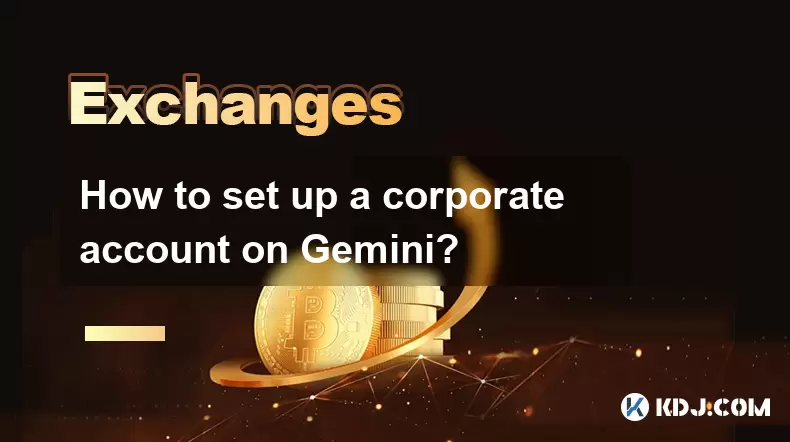
How to set up a corporate account on Gemini?
Aug 05,2025 at 03:29pm
Understanding Gemini Corporate AccountsGemini is a regulated cryptocurrency exchange platform that supports both individual and corporate account crea...
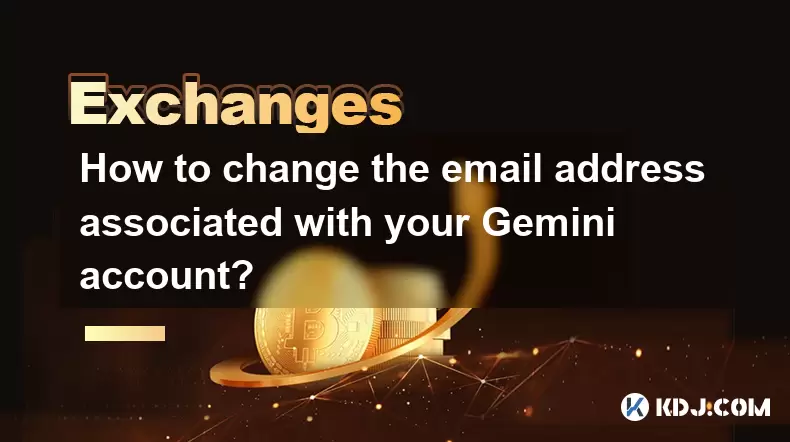
How to change the email address associated with your Gemini account?
Aug 06,2025 at 08:49pm
Understanding the Importance of Updating Your Email on GeminiYour email address serves as a primary identifier and communication channel for your Gemi...
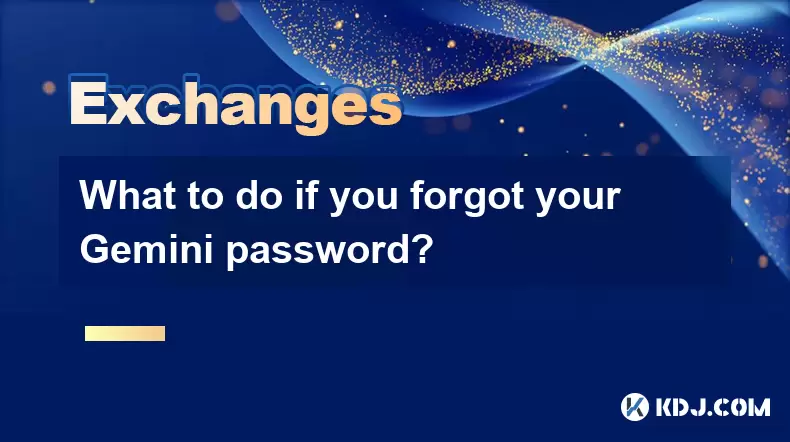
What to do if you forgot your Gemini password?
Aug 04,2025 at 03:42am
Understanding the Role of Passwords in Gemini AccountsWhen using Gemini, a regulated cryptocurrency exchange platform, your password serves as one of ...
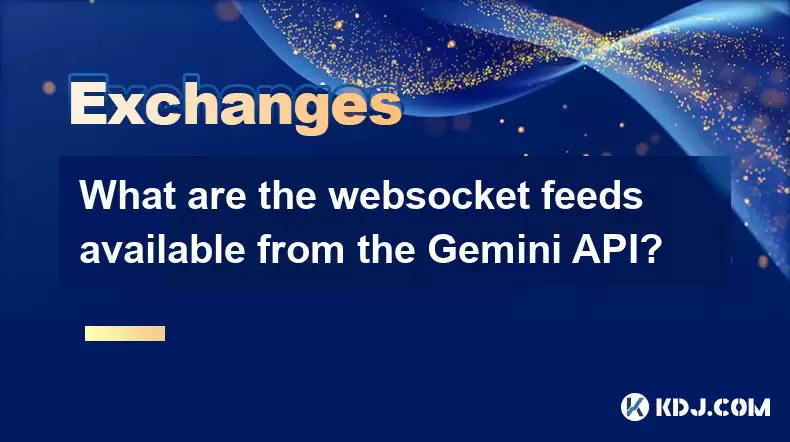
What are the websocket feeds available from the Gemini API?
Aug 03,2025 at 07:43pm
Overview of Gemini WebSocket FeedsThe Gemini API provides real-time market data through its WebSocket feeds, enabling developers and traders to receiv...

How to set and manage alerts on the Gemini app?
Aug 03,2025 at 11:00am
Understanding the Gemini App Alert SystemThe Gemini app offers users a powerful way to stay informed about their cryptocurrency holdings, price moveme...

How to use the Gemini mobile app to trade on the go?
Aug 04,2025 at 09:14am
Setting Up the Gemini Mobile AppTo begin trading on the go using the Gemini mobile app, the first step is installing the application on your smartphon...

How to set up a corporate account on Gemini?
Aug 05,2025 at 03:29pm
Understanding Gemini Corporate AccountsGemini is a regulated cryptocurrency exchange platform that supports both individual and corporate account crea...

How to change the email address associated with your Gemini account?
Aug 06,2025 at 08:49pm
Understanding the Importance of Updating Your Email on GeminiYour email address serves as a primary identifier and communication channel for your Gemi...

What to do if you forgot your Gemini password?
Aug 04,2025 at 03:42am
Understanding the Role of Passwords in Gemini AccountsWhen using Gemini, a regulated cryptocurrency exchange platform, your password serves as one of ...

What are the websocket feeds available from the Gemini API?
Aug 03,2025 at 07:43pm
Overview of Gemini WebSocket FeedsThe Gemini API provides real-time market data through its WebSocket feeds, enabling developers and traders to receiv...
See all articles

























































































